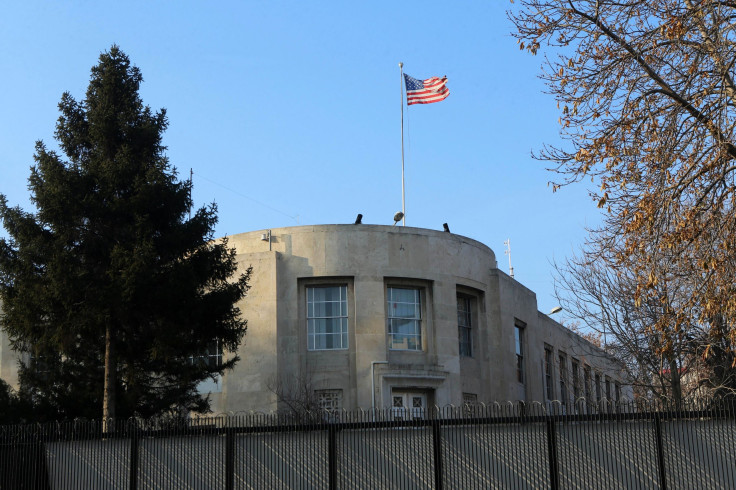Americans Warned As Security Threat Prompts Closure Of US Embassy In Turkey

The U.S. embassy in Turkey’s capital Ankara was closed Monday due to an unspecified “security threat” to Americans. Only emergency services will be provided while the embassy will remain closed to the public until further notice, a statement said Sunday.
An embassy statement warned U.S. citizens in the country to avoid large crowds and asked them to avoid the embassy area. "Heighten your personal security posture and awareness" when visiting popular tourist sites, shopping malls, shopping districts, and sports and entertainment venues, the statement said, adding that Americans must keep a low profile.
"Routine services, such as passport renewals including lost or stolen passports, reports of birth abroad, and notarial services, are not considered emergencies. Requests for these services will be processed through our online appointment system once the Embassy reopens. Visa interviews and other routine services are cancelled; applicants will be informed directly of steps to take," the statement read.
No further details about the threat were released by the embassy.
The embassy was the target in 2013 of a suicide bombing that killed a Turkish security guard. A far-left group known as DHKP-C, or Revolutionary People's Liberation Party-Front, had claimed responsibility for the attack.
Relations between Washington and Ankara, both NATO allies, have been strained over a number of issues, including the U.S. arming of a Syrian Kurdish militia, the Syrian Kurdish People's Protection Units (YPG) — which has been a U.S. ally in the fight against the Islamic State group. Ankara criticized the move as it sees such Kurdish groups as linked to separatist group Kurdistan Workers' Party, or PKK.
In late January, Turkey urged the U.S. to end its support for YPG fighters or risk confronting Turkish forces on the ground in Syria. Washington has about 2,000 troops in Syria as part of the U.S.-led coalition fighting against ISIS.
“Those who support the terrorist organisation will become a target in this battle,” Deputy Prime Minister Bekir Bozdag reportedly said at the time. “The United States needs to review its soldiers and elements giving support to terrorists on the ground in such a way as to avoid a confrontation with Turkey.
There has also been tensions between the two nations over a Muslim cleric named Fethullah Gülen, who has been living in exile in the U.S. Turkish President Recep Tayyip Erdogan claims Gülen orchestrated the failed 2016 coup attempt. Erdogan urged Washington to extradite him, but his request was refused.
Last month, U.S. Secretary of State Rex Tillerson pledged cooperation with Erdogan’s government after acknowledging that ties with Turkey are at a “crisis point.”
“We’re going to lock arms, we’re going to work through the issues that are causing difficulty for us,” Tillerson said on Feb. 16. “We know we need to move with some sense of urgency and promptness.”
During his Turkey visit last month, Tillerson also warned the country over its plans to buy S-400 missile defense system from Russia, a move that could lead to sanctions under the law called the Countering America’s Adversaries Through Sanctions Act. The S-400 deal, which was signed last year, is reportedly worth nearly $2.5 billion.
Tillerson said at the time that he wanted to “at least ensure they understand what might be at risk in that particular transaction.”
© Copyright IBTimes 2024. All rights reserved.







